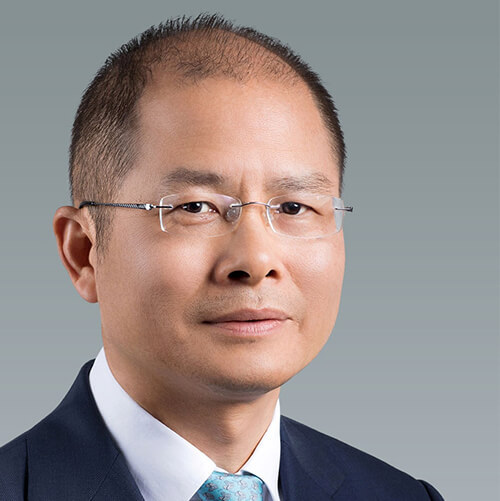
6G is in danger of becoming politicized and over-hyped, Huawei's Eric Xu has warned.
The heavy focus on 5G by governments around the world had politicized the technology and meant the wireless industry today "is not in a very favorable environment as we work towards 6G," Xu, Huawei's current rotating chairman, said Friday. Now is the time when scientists should be doing fundamental work defining 6G and 6G scenarios, Xu told a press conference.
"How 6G will differ from 5G? What will be the difference in speed, what will be the application scenarios?" The industry needed to stay focused on solving these key problems without "too much hyping around 6G at this point," he said. The new standard was still in its early stages and "we have no idea what 6G will eventually be. But because 5G has been politicized too much, 6G from the very beginning is drawing too much attention and runs the risk of being too politicized as well."
Down the line
The next-gen technology would likely make its commercial debut in 2030, Xu said recently. He said Huawei looked forward to working with other players to "collectively define 6G over the next ten years." Discussing the impact of US sanctions, Xu said Huawei's smartphone revenue would plummet by around $30 billion to $40 billion in 2021, down from approximately $50 billion in sales in 2020. Huawei was pursuing new business from areas such as industrial 5G, but "it will take a rather long time for us to compensate for the loss of $30-$40 billion."
Xu said the company had no plans to downsize or close its chip design subsidiary HiSilicon, despite its inability to make advanced handset chipsets because of the US sanctions. "The company does not have the expectation of making a profit from HiSilicon. As long as Huawei is still around we will keep the division up and running."
Silver linings
He said the Chinese semiconductor industry had performed "better than many of us expected" since the US government blocked access to advanced chip manufacturing technology two years ago. But it would take "a long period of time" before the semiconductor supply problems faced by Huawei and the Chinese industry were solved.
Interested in Asia? Check out our dedicated content channel here on
Light Reading.
Xu said Huawei had no fears that its new business areas, such as the connected car, would be affected by sanctions.
The company would not have gone into those businesses if it did not have confidence it could obtain the necessary supplies.
Related posts:
— Robert Clark, contributing editor, special to Light Reading
Read more about:
AsiaAbout the Author(s)
You May Also Like











